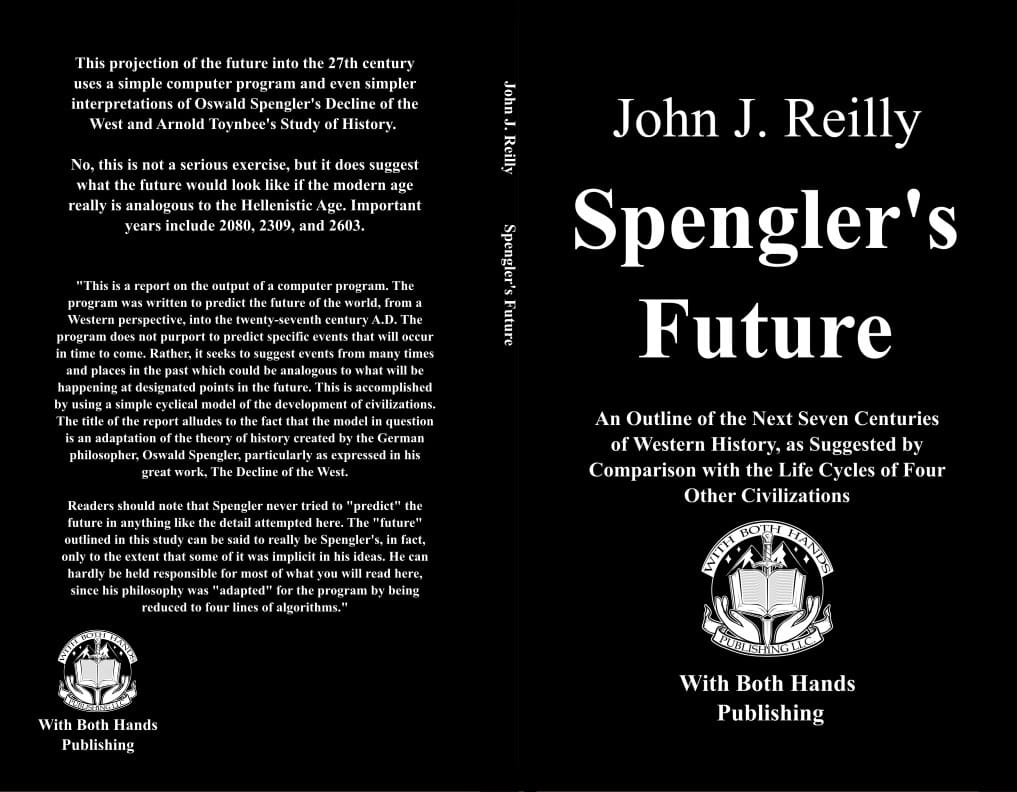John J. Reilly's Books

In his lifetime, John Reilly published four books.

Spengler's Future was first published by Millennium Publications in 1993, and re-published by With Both Hands Publishing in 2023.
This projection of the future into the 27th century uses a simple computer program and even simpler interpretations of the Oswald Spengler's Decline of the West and Arnold Toynbee's Study of History. No, this is not a serious exercise, but it does suggest what the future would look like if the modern age really is analogous to the Hellenistic Age. Important years include 2080, 2309, and 2603.

The Perennial Apocalypse was first published by Online Originals in 1998.
Would you believe that this formula describes the structure of history?

If you would, maybe you shouldn't. However, this formula is helpful in describing many of the meta-narratives of history found around the world. The Perennial Apocalypse is a cross-cultural and cross-temporal study of models of history considered as a class of story. The book tries to do for doomsday what The Hero with a Thousand Faces did for the myth of the hero.

Apocalypse & Future is published by Xlibris.
This paperback collection of "Notes on the Cultural History of the 21st Century" shows the millennial imagination at work at every level of late-modern civilization. Though providing important background on the apocalyptic ideologies of the radical Right, the anthology is chiefly concerned to show how the future is being shaped by "normal" millennialism. The book provides a unique perspective on "the Clash of Civilizations" and on environmental ideology.

The Perfection of the West is published by Xlibris
Oswald Spengler once said that The Decline of the West could have been given this title, because he was really talking about the coming of the "final forms" of Western Civilization. This paperback anthology of items from John Reilly's Homepage takes Spengler at his word by looking at his ideas from the perspective of the early 21st century. The topics covered include the necessity and ethics of global empire, the exhaustion of modernism, and the contest between Americanism and Tradition for the definition of the final forms.